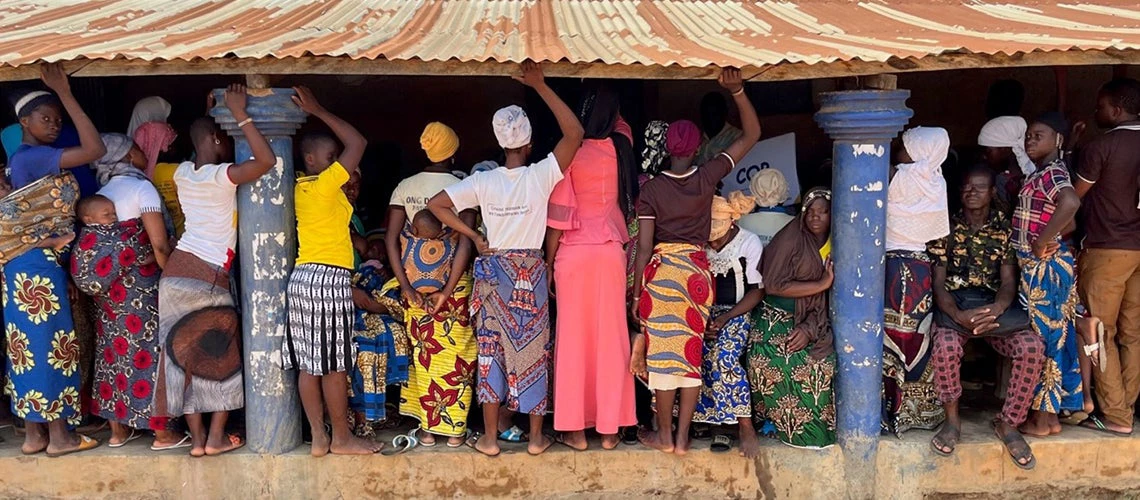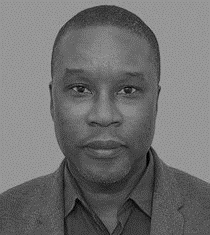 Helping Youth in Benin Find Economic Opportunities
Helping Youth in Benin Find Economic Opportunities
Like many of its neighbors, Benin is experiencing growing threats of conflict. The country’s proximity to Burkina Faso, Niger, Nigeria, and Mali—all experiencing violent extremism—makes it vulnerable to criminal activities and conflict. The lack of economic opportunities, as well as limited access to health, education, and social protection, make youth especially vulnerable to being pulled in by extremist groups.
Despite good economic growth and major reforms over the last few years, youth in Benin are still finding it hard to get an education, find jobs, and participate in local government. With the increased risk of violence and fragility in surrounding countries, this has become an even more pressing challenge.
Understanding what drives conflict and violence in local communities is critical to designing the appropriate conflict prevention strategies that will increase Benin youth’s participation in society and avoid the spillover of violence.
In response, the Benin Youth Inclusion Project— funded by the State and Peacebuilding Fund (SPF) initiated a study through the Institute for Security Studies. This study aims to comprehend the factors driving violence and formulate strategies to identify at-risk villages and neighborhoods requiring targeted investments to address the drivers of violence.
Understanding the risks of violence
The study identified three primary forms of violence in Benin: violent extremism, local conflicts, and gender-based violence. Border communities, especially those located in the north, are more vulnerable due to porous borders and weak state services. Conflict in Benin is linked to weak governance and economic factors such as resource competition, illegal activities, protection of income-generating activities, and insufficient access to education and health. Weak governance factors include low rule of law, marginalization of women, power struggles, low education, and high illiteracy rates.
Addressing the identified risks necessitates focusing on youth’s professional and economic integration and participation in local government. The Azoli program, developed under the Benin Youth Inclusion Project, offers employment services for vulnerable youth, promoting economic inclusion through information, life skills training, entrepreneurship services, coaching, internships, and technical training.
Identifying high-risk areas of violence
The study pinpoints high-risk areas using criteria like border localities that are among the poorest and least accessible, lack social infrastructure, and have limited access to education, health, water, and markets; areas threatened by violent extremism because of the presence or visit of extremist groups and radicalized youths; and those experiencing rising crime rates or local conflicts among breeders and farmers.
A Vulnerability Index, developed in collaboration with national authorities, categorizes areas based on their likelihood of violence. Gender-based violence remains underrepresented due to data limitations.
Government, donors, and other stakeholders use the digitized database to better plan development interventions. The Benin Youth Inclusion Project and the Gulf of Guinea Northern Regions Social Cohesion Project use the Vulnerability index to identify fragile areas and tailor outreach activities. The study benefitted from the participation of a nationwide process involving both state and local actors such as the Border Management Agency and the National Commission for Countering Radicalization, Violent Extremism and Terrorism. Over 400 local police commissioners participated in data collection, providing a detailed mapping of violence-prone areas—a first in Benin.
The study aims to enhance the integration of conflict prevention in development programs, enabling stakeholders to design specific approaches and prioritize activities in villages and neighborhoods at the highest risk of violence in the country.
The State and Peacebuilding Umbrella Trust Fund (SPF) is a global multi-donor fund administered by the World Bank that works with partners to address the drivers and impacts of fragility, conflict, and violence, and strengthens the resilience of countries and affected populations, communities, and institutions. SPF is supported by Denmark, Germany, Netherlands, Norway, Sweden, Switzerland, and IBRD.
The authors thank Cynthia Raquel Delgadillo and Aline Coudouel for their valuable contributions.



Join the Conversation